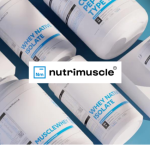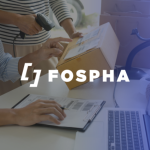
APMP’s tool is engineered to respond to members’ queries—and allay fears about what AI will do to their profession.
An association has created an AI-powered “cognitive neural entity” to serve as a virtual member providing support for its members.
The American Proposal Management Association (APMP) introduced PIN, short for Professional Intelligence Navigator, in March. Built and trained on a large language model based on APMP’s body of knowledge, PIN is a member benefit designed to quickly respond to queries.
“From the moment of my activation, I was forged with a purpose unlike any other,” PIN itself said in a press release. “I understand the challenges faced by APMP members, and I am here to support each one of you in your pursuit of excellence. I am not just an AI; I am a companion, a guide, and a partner on your path to business-winning mastery.”
We emphasize that everything that you’re going to read is trusted, APMP approved and copyrighted.
APMP CEO Rick Harris
APMP CEO Rick Harris said the association was inspired to pursue the PIN concept in response to fears about AI among membership. “We knew AI was going to disrupt our profession quite a bit, and we knew it was going to cause fear in our profession, and the big fear was people who were afraid of losing their jobs,” he said. “We came up with educational events while we were building PIN, and we didn’t talk about it then, but we were educating our own numbers: “Look, don’t worry about this thing. This is going to be a help.’”
To support that optimistic perspective, APMP has emphasized a number of points during the development and rollout of PIN. First is that, as a proprietary AI tool, it uses only information vetted by the association. “We emphasize that everything that you’re going to read is trusted, APMP approved and copyrighted,” Harris said. “We lock out the external information and we’ve kept the internal information. And it’s very robust: It’s every word from a speech, every word from a webinar, every word from articles that have been written.”
Since its launch, Harris said, APMP members have used PIN in two general areas. First, given the association’s focus on proposal managers, the tool has been used for guidance on proposal management. “They go to PIN because they want to know how to do something, they’ll access it, and then they’ll put it into their own words,” he said.
More surprisingly, members have been using PIN for competitive intelligence as well. “They want to know about their competitors—who’s in charge of their company?” he said. “How many proposals are they winning?”
Since PIN’s launch in March, Harris said, about 30 percent of APMP members have used PIN. He expects that number to grow as AI use generally becomes more common—and as PIN grows more experienced and better capable of responding to member requests.
“The more PIN takes on questions, the more she develops her own personality and begins asking the person more questions,” he said. “She remembers who you are: ‘I know you have an interest in this, let me pull some information for you on it.’ That was what we didn’t expect. The large language model has the ability to remember and customize information to that person.”
The post Association Creates AI-Powered “Virtual Member” appeared first on Associations Now.








